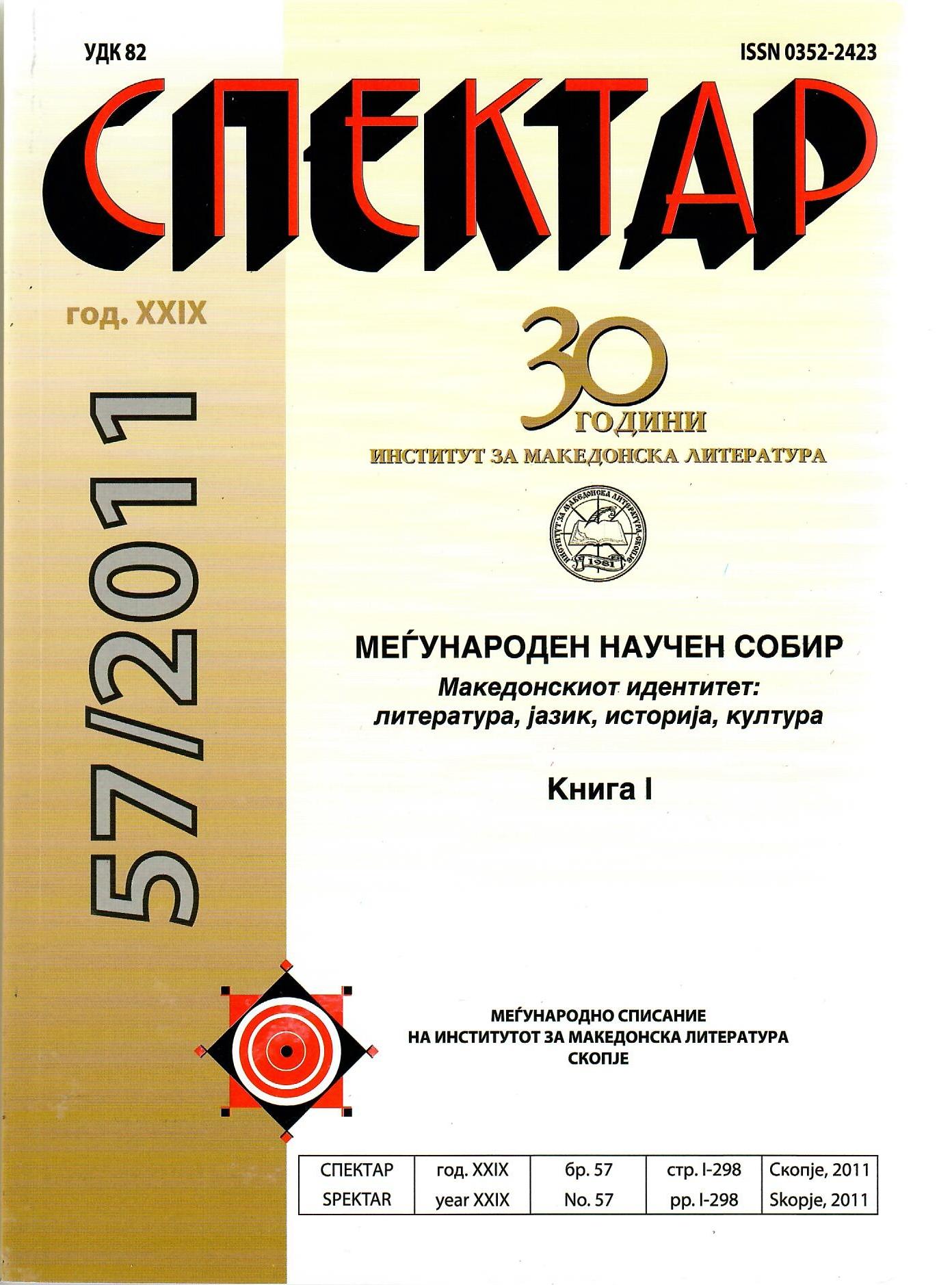ЛОВЦИ НА ДУШИ Џ. Ф. Абот Приказна за патувањето низ Македонија
FISHERS OF SOULS G. F. ABBOTT THE TALE OF A TOUR IN MACEDONIA
Author(s): Jasemin NazimSubject(s): Cultural Anthropology / Ethnology
Published by: Институт за македонска литература
Keywords: Abbott; travelogue; year 1900; Macedonia; ethnic mixture; propaganda; Macedonian Slavs; national identity
Summary/Abstract: George Frederick Abbott was an English correspondent and writer. He described his travel in Macedonia during 1900 in the book “The Tale of a Tour in Macedonia”, published in London in 1903. An excellent observer and talented writer, Abbot presented a rather objective picture of the people and life in Macedonia. Abbott describes the life and interrelationс of the people of various ethnicities and religious beliefs living on the territory of Macedonia during the last years of the Ottoman rule. His observations on the ethnic identity of the Macedonian Slavs are of special interest for us. Most often he names them as Bulgarians, but he is honest enough to conclude that it is rarely possible to assign to the Slavs of Macedonia a distinct nationality with any degree of certainty. “Christians speaking a Slavonic idiom is as far as the cautious student can go with a clear conscience”, writes Abbott. These patient and laborious people, as he describes them, who used their fine intellect for self-protection and survival, were targets of the “fishers of souls” working for the interests of the neighboring Balkan nations: Bulgarians, Serbs and Greeks. According to Abbott, the faster and the richer determined the nationality. The multiethnic picture of Macedonia, the religious foundation of the Ottoman Empire, the prenational state of mind of the majority of the population, as well as the ambitions and actions of the neighboring states, contributed to the creation of a blurred notion for the nationality of the Macedonian Slavs, not only to Abbott, but also to the majority of the contemporary European observers.This is not surprising, as in that turbulent period of the turn of centuries, the Macedonian national self-consciousness was still in the process of formation, primarily among the Macedonian intelligentsia and the revolutionary movement. The dominant rural population had probably not yet clearly defined its identity in that particular period. By describing the situation in Macedonia, through exact an illustrative examples, Abbot provides an important contribution for understanding the identity processes of the Macedonians, as well as the obstacles and challenges they confronted.
Journal: Спектар
- Issue Year: 2011
- Issue No: 57
- Page Range: 234-244
- Page Count: 11
- Language: Macedonian

